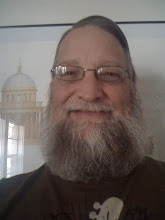For many conservatives these are joyous times. Finally, the Supreme Court of the United States (SCOTUS) is going to rule on the Affordable Care Act of 2009, affectionately known as ‘ObamaCare’. Some see this as a historical time and they are giddy with delight that ‘finally’, as they perceive it, the Court will begin to limit the federal government’s power. The tide will turn and the country will be saved. Indeed, we are over a century into a battle within the Court to define the limitations on the federal government vis á vis the U.S. Constitution. Now, certainly the battle is longer, as it began almost as soon as the iron ink dried on the animal skin (No; it is not hemp Hippie Dude[Dudette]).
The real meat of the battle began with the Sherman Anti-Trust Act and subsequent cases such as E.C. Knight (1896) and Lochner (1905) in the early years; followed by West Coast Hotel Co. v Parrish (1935) and Wickard v Filburn (1942) in the New Deal era. There are way too many to name them all but the gist of it is that the Court in many cases while attempting to establish limits on Congress or the President, indeed at the same time defined an almost limitless power to Congress in the matter of interstate commerce under the Commerce Clause of the Constitution. It is richly ironic that such is the case, that while the Court was attempting to withhold power, they were in fact opening the door to almost unlimited power. This argument is not new. In fact in commenting on the Northern Securites (1904) case none other than the distinguished Justice Oliver Wendell Holmes opined that Congress must have judicially enforced limitations or, “…there is no part of the conduct of life with which on similar principles Congress might not interfere.” Sound familiar?
So it comes down to this my friends; for a century various nine member panels of judges have been trying to define Constitutional powers. In most if not all cases there is on the one hand those that argue that federal powers are severely restricted by the Constitution. On the other hand are those that argue that a freely elected Congress being the embodiment of the will of the People has almost unlimited power so long as it is determined that such power is “…adopted for the protection of the community against evils menacing the health, safety, morals and welfare of the people.” …to directly quote from the West Coast Hotel decision.
Therefore, the questions you must ask yourself are these:
1. Did the Founding Fathers intend for the Supreme Court to be the final arbiter of all things Constitutional?
2. Am I comfortable leaving the fate of my Constitutionally protected rights in the hands of nine unelected men or women who may or may not have a political agenda in direct conflict with the protection of said rights?
For the purpose of clarity, and to give you a chance to mull it over, I will leave this for another day.
Hint: “You seem to think it devolved on the judges to decide on the validity of the sedition law. But nothing in the Constitution has given them a right to decide for the Executive, more than to the Executive to decide for them. Both magistracies are equally independent in the sphere of action assigned to them.” - Thomas Jefferson
by: Keith D. Rodebush

No comments:
Post a Comment